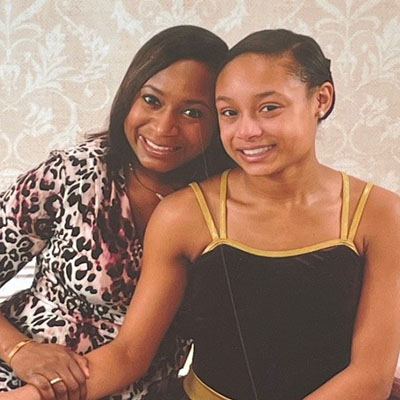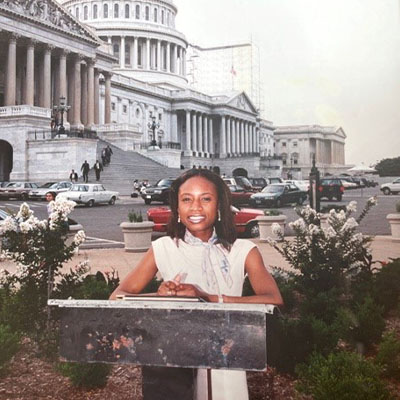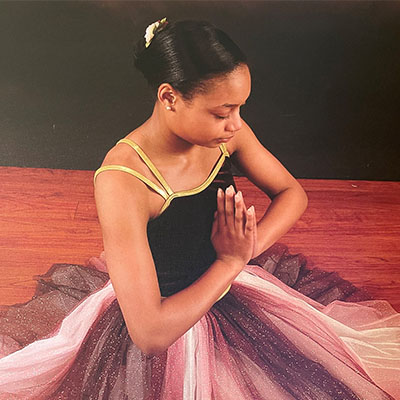Author: Elridge D. Proctor, MPA, Senior Director, Government Affairs, GO2 for Lung Cancer
Following my graduation from Bethune Cookman College (now Bethune University), a private historical black college founded by educator, humanitarian and civil rights activist Dr. Mary McLeod Bethune, with a degree in political science, I went to work on Capitol Hill for Georgia Congresswoman Cynthia Ann McKinney and began advocating for and with nonprofit organizations on behalf of America’s patient population.
My work for Rep. McKinney’s policy agenda was extremely rewarding and resulted in two pieces of legislation being enacted. My advocacy journey continued outside of Congress where I use my voice and political experiences to serve the patient community.
But like you, I had a first-hand experience advocating for my own family.
This is my story.
Sixteen years ago, my then one-month old daughter exhibited an onset of seizures or what I remember as body jerks with painful facial grimaces. After an initial electroencephalogram (EEG), a test that detects electrical activity in her brain that yielded abnormal test results, she was prescribed seizure medications that had only been studied in infants nine months of age and older. The lack of pediatric studies left my daughter at a disadvantage at such a very young age.
I wasn’t comforted by the doctor’s comments that Harriet Tubman accomplished great things even though she had seizures because I wasn’t convinced that my daughter was having seizures. So, I advocated for her and made the decision to forgo the medication. We then faced an undiagnosed, uncertain and unpredictable journey. This diagnostic odyssey took us from one specialist to another, only to arrive with no conclusive diagnosis or treatment plan.
Today, my daughter is doing exceptionally well, even though she was never diagnosed or treated for any neurological condition. I honestly believe it was our strong faith in God that brought us through the months in and out of patient care in the Neurology Department at National Children’s Hospital in Washington, DC.
With the competing needs of family time, doctor visits and her illness, I didn’t have the will to seek help or support from outside of my home or family until I saw an Oprah Winfrey episode on the misdiagnosis of Tourette Syndrome, a life-long, inherited and misunderstood neurological disorder that is often stigmatized and made fun of because of uncontrollable verbal and motor tics. The show mirrored exactly what we had been through in my daughter’s journey. Because I could relate to the challenges families of a loved one with Tourette’s face, I joined the National Tourette Association as their vice president of public policy.
Advocacy is personal.
For me, advocacy is personal. I found that in telling the stories of other patients, I was telling my own. Their issues became mine.
When I joined GO2 for Lung Cancer, I developed advocacy strategies for the lung cancer community based on my prior work and personal experiences. The advocacy training I provide attendees at our annual Lung Cancer Voices Summit guarantees they will get the attention of members of Congress and their staff.
I have learned that advocacy’s number one goal is to educate key government officials to gain their support. Anger in advocacy does not encourage support or a desire to take action. Telling personal stories does because it creates a connection with elected representatives because they learn first-hand the challenges our constituents face. It is that understanding that motivates them to take action.
I understand the reasons that prevent individuals from letting their voices be heard, including the simple fact that some people find advocacy intimidating and outside of what they normally do. But consider how much more education and awareness is needed to relay the profound impact lung cancer has on Americans across every state in the nation.
We have experienced the powerful role community advocacy played in establishing the first-ever federal research-funding pipeline for lung cancer within the Congressionally Directed Medical Research Programs (CDMRP) administered by the Department of Defense. It is the largest program next to the National Institute of Health (NIH). Thanks to our advocacy efforts, the first Congressional Lung Cancer Caucus in the House of Representatives that was created is working to increase the research funding to $60M this year. We also successfully secured lung cancer screening as a fully covered preventive service for the millions at high risk… and those are just a few lung cancer advocacy accomplishments!
As ardent advocates, our community will use its collective voice on May 17th to tell Congress “it’s personal.” I want us to be heard as one loud voice on the ask for $60M for the Lung Cancer Research Program. This is how we will continue the legacy of successes in the fight to end lung cancer as we know it.
Register today for the 2022 Virtual Lung Cancer Voices Summit on May 16-17. Your voice makes a difference!





Your story is a true testimony of believing in faith. Sometimes we as parents rely solely on Dr diagnosis without observing or studying our own children. It is great news to hear that your daughter is doing well. Your story is an inspiration to all families dealing with similar issues. Thank you for sharing.